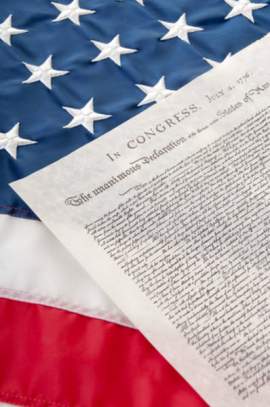
Worcester v. Georgia

Worcester v. Georgia: The Background
Worcester v. Georgia deals with Georgia state laws that were passed in the middle of the 1800s. These laws were passed following an agreement reached between the Cherokee tribe and the state government of Georgia. The laws instituted a prohibition of non-Indians from living in Indian territories. Only Non-Native Americans with special permission from the government were allowed to live on these lands.
The case beings when missionary Sam Worcester and his family (wife and 5 fellow missionaries) refused to move from a land that was labeled an “Indian territory.” In addition to refusing to move, the group refused to apply for the government license that would allow them to reside on the lands. Because of this refusal, the army entered the Native American lands and arrested Worcester along with the other 6 people. Following his arrest, Worcester appealed his charges and took his case to the Supreme Court.
Worcester v. Georgia: The Case Profile
Worcester v. Georgia began on February 20th of 1832. The case was filed by Worcester who claimed that his family’s forced removal was a violation of his constitutional rights. He believed the state of Georgia over-stepped their boundaries, for they did not maintain jurisdiction to enforce the law within the Native land. Worcester v. Georgia was decided on March 3rd of 1832 by the United States Supreme Court.
Worcester v. Georgia: The Verdict
Chief Justice John Marshall (the judge who presided over the case) ruled in favor of Mr. Worcester in Worcester v. Georgia. Chief Justice Marshall believed that the state government of Georgia did not have the power to enforce a law within lands that were not within the jurisdiction of the state. The Supreme Court, through Marshall, also stated that the interactions between the Native American tribe and the state of Georgia must be considered and approached as international talks.
The Supreme Court of the United States ruled in favor of Worcester because they found the state to have violated his 14th Amendment rights. The 14th Amendment does not allow any government in the United States from blocking a citizen’s right to pursue “life, liberty and happiness.” Furthermore, Worcester v. Georgia also dealt with the due process clause which refers to the government’s obligation to maintain and respect these legal rights. The United States government is thus required to treat all American citizens in a respectful manner. Any attempt to over-step their boundaries will be deemed a violation of the constitution. The case of Worcester v. Georgia is an example of this.



















